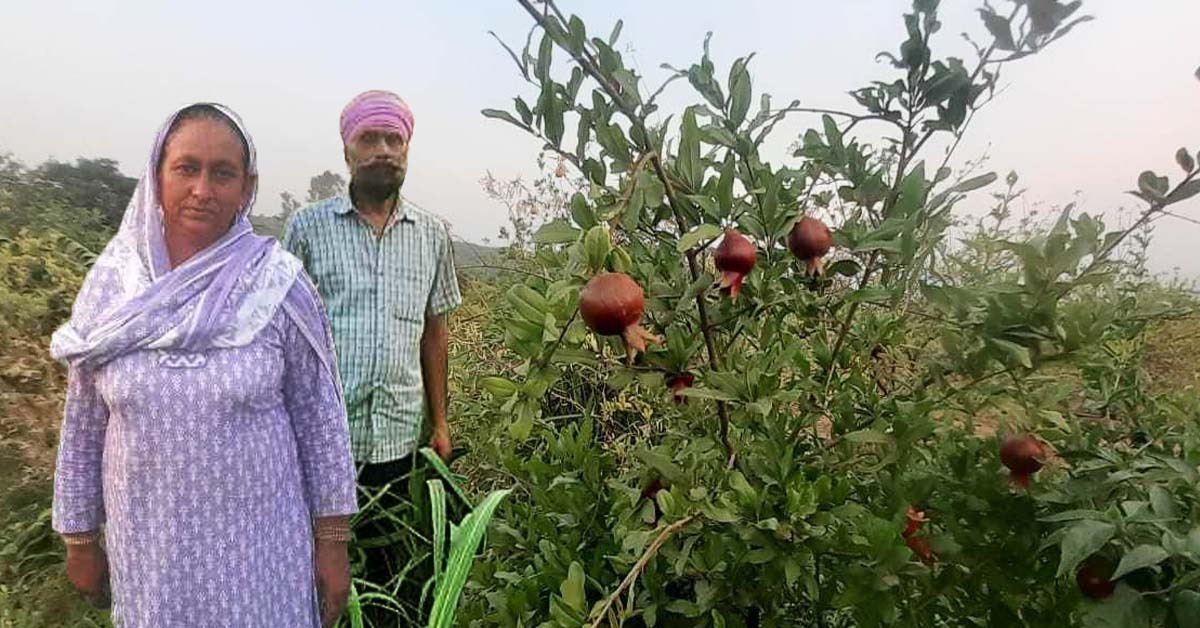Zero Price range Pure Farming (ZBNF) is a sustainable agricultural follow pioneered by agriculturist Subhash Palekar, emphasising pure progress processes with out artificial fertilisers or pesticides.
As a substitute of costly hybrid seeds and exterior inputs, the strategy leverages regionally accessible sources reminiscent of native seeds, cow dung, cow urine, and plant extracts discovered on the farm. This makes enter prices negligible whereas enhancing soil well being and crop yield. The important thing practices embody the utilization of fertilisers reminiscent of Jeevamrita and Beejamrita.
Now we have curated insights shared by farmers who made their farms worthwhile by turning to pure farming. Listed below are detailed processes for making numerous cow dung-based fertilisers and pure pest management strategies.
1. Beejamrita
Beejamrita is a formulation of cow dung, urine, and chuna (lime). It’s used to deal with seeds earlier than sowing to reinforce germination and shield in opposition to soil-borne illnesses.
Steps:
1. Combine a small amount of cow dung and urine.
2. Add a pinch of lime and mix nicely.
3. Coat seeds with the combination earlier than sowing.
2. Jeevamrita
For the previous six years, Jaswinder Kaur and Ranjit Singh from Himachal have been utilizing zero-budget pure farming to domesticate over 25 sorts of crops. They counsel fertilising the soil with Jeevamrita after seed germination, which takes about 15 days. This course of will increase microbial exercise and nutrient availability post-germination.
Steps:
1. Take 5 kilograms of cow dung and 7 litres of urine.
2. Combine them in a 200-litre giant drum.
3. Add 1.5 kg every of jaggery and chickpea flour to the combination.
4. Fill the drum to the brim with water and stir nicely.
5. Take 40 litres of Jeevamrita to fertilise one bigha of land.
3. Brahmastra
This pure insecticide controls pests and enhances plant resistance.
Steps:
1. Take one kilogram of leaves from 4 totally different vegetation, together with neem leaves.
2. Crush the leaves and blend them with 4 litres every of cow urine and dung.
3. Boil the combination, enable it to chill, and pressure it right into a storage tank.
4. Spray it on crops 48 hours after preparation.
5. You’ll be able to retailer this combination for as much as six months.
4. Agnihastra
If bugs persist, farmers advise utilizing Agnihastra. It’s ready utilizing spicy inexperienced chillies, peppers, and garlic. “It’s positive to manage pest assaults,” says Ranjit.

Steps:
1. Crush the chillies, peppers, and garlic to extract their juices.
2. Mix the extract with cow urine (alter the proportions as wanted).
3. Apply the combination to affected vegetation for efficient pest management.
5. Curd-based fungicide
Uttar Pradesh-based Dheeraj Verma, who grows strawberries, prepares a novel fungicide utilizing curd.
Steps:
1. Add 50 grams of copper wire or a copper lota (spherical vessel) to 1 litre of curd.
2. Let the combination sit for not less than 15 days till it turns utterly blue.
3. Take two millilitres of this combination and dilute it in a single litre of water.
4. Spray the diluted combination on crops as soon as every week all through the season.
“As strawberries are closely attacked by pests and fungi, farmers are sometimes pressured to spray chemical pesticides. Nevertheless, I used to be in a position to lower chemical inputs with this fungicide. It tackles fungi assault and provides a very good yield,” says Dheeraj.
By utilising cow dung, cow urine, and regionally accessible plant supplies, farmers can create a closed-loop system that nourishes the soil and naturally protects crops. Adopting these strategies not solely reduces dependence on chemical inputs but in addition promotes ecological stability and ensures long-term agricultural sustainability.
Glad pure farming!
Edited by Khushi Arora

